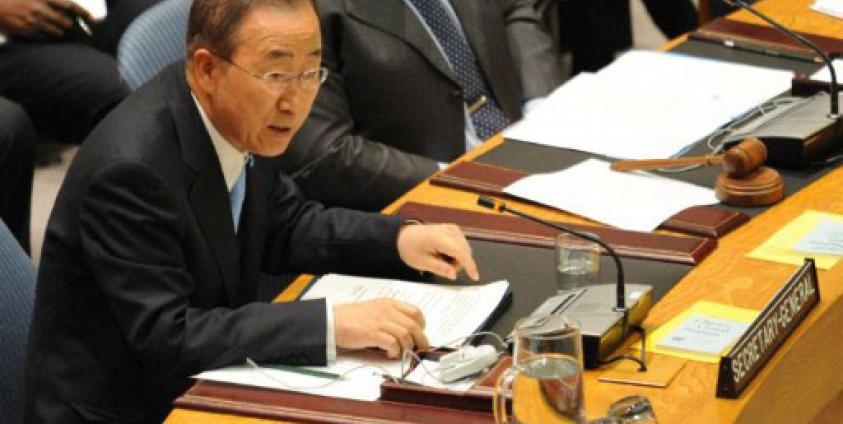Chiang Mai (Mizzima) – The United Nations Secretary-General Ban Ki-moon said it remains to be seen whether Burma’s newly elected government is committed to its roadmap to democracy.
‘It is clear that Myanmar [Burma] today continues to face the same challenges it has faced for too long: the country’s human rights, political, social, economic and humanitarian problems are serious, deep-seated and long-standing’, Ban’s spokesperson said on Wednesday, according to the UN news centre.
Burma elected a new government in November 2010, following decades of military rule, offering the promise of change, but as the comments of the UN secretary-general indicate, significant change has yet to manifest itself.
With regard to facing these problems the statement said that the international community has a ‘shared responsibility’ towards Burma, and that a ‘successful transition’ required the international community to ‘follow events closely but also to recognize efforts and maximize opportunities for meaningful change’.
The UN secretary-general also called for all Burmese citizens to be allowed to participate in ‘building their country’s future’.
He said that it remains to be seen whether Burma’s new government has the political will, capacity and support to live up to its commitments and promises on its proclaimed road-map to democracy.
Ban again called for the release of all political prisoners to ensure the credibility of reform in the country; a call that has been much reiterated but has not had any real effect on the regime, which only last month made what it called an ‘amnesty’ to prisoners who had less than one-year remaining on their sentence.
The prisoners were granted a one-year presidential commutation by President Thein Sein, which resulted in the release of 14,600 prisoners. Several dozen political prisoners were released but the measure had no real effect on political prisoners serving longer sentences.
Benjamin Zawacki, the Amnesty International Myanmar researcher, called the commutation ‘astonishingly insufficient', and Tin Tin Nyo, general-secretary of the Women’s League of Burma toldMizzima, ‘For political prisoners who are serving a 65-year prison term, this order will make no difference’.
The UN stance on Burma has come under fierce criticism from international observers, NGOs and human rights groups, who have criticized the UN secretary-general for not appointing a permanent UN special envoy to Burma.
Vijay Nambiar has served in the role of an interim envoy for more than a year. National League for Democracy (NLD) spokesperson Ohn Kyaing told Mizzima in an interview last month that the appointment and approval of the US special envoy to Burma would be more effective than that of the UN envoy, just hours after Nambiar met with Aung San Suu Kyi and other NLD members during his three-day visit to Rangoon in May this year.
Ban came under criticism last year when he neglected to impart vital information gathered by the UN special rapporteur on the human rights situation in Burma, Tomás Ojea Quintana, when he gave a report to the UN General Assembly on the situation of human rights in Burma last year. Although he briefly mentioned Quintana’s report, he neglected to bring to the fore the fact that the special rapporteur had brought forward a key recommendation to establish a UN Commission of Inquiry into ‘gross and systematic’ human rights abuses and crimes against humanity in Burma, Mizzima reported in October.
At the time, Mark Farmaner of Burma Campaign UK told Mizzima that ‘for the secretary-general to ignore the advice and the evidence presented by the UN’s own Burma expert is deeply worrying’.
Human rights activist and Burma Campaign UK international coordinator Zoya Phan has criticized Ban’s reticence on the regime’s campaign of violence against women. ‘Ban Ki-moon says sexual violence against women is a silent war, but he is silent about the Burmese army using sexual violence and that encourages the dictatorship to think they can get away with it’, she told Mizzima in May.
Ban is due for a second term as UN secretary-general, with voting likely before the end of June. On 6 June, Ban said he would be 'deeply honoured' to serve another term, according to the UN news centre.


